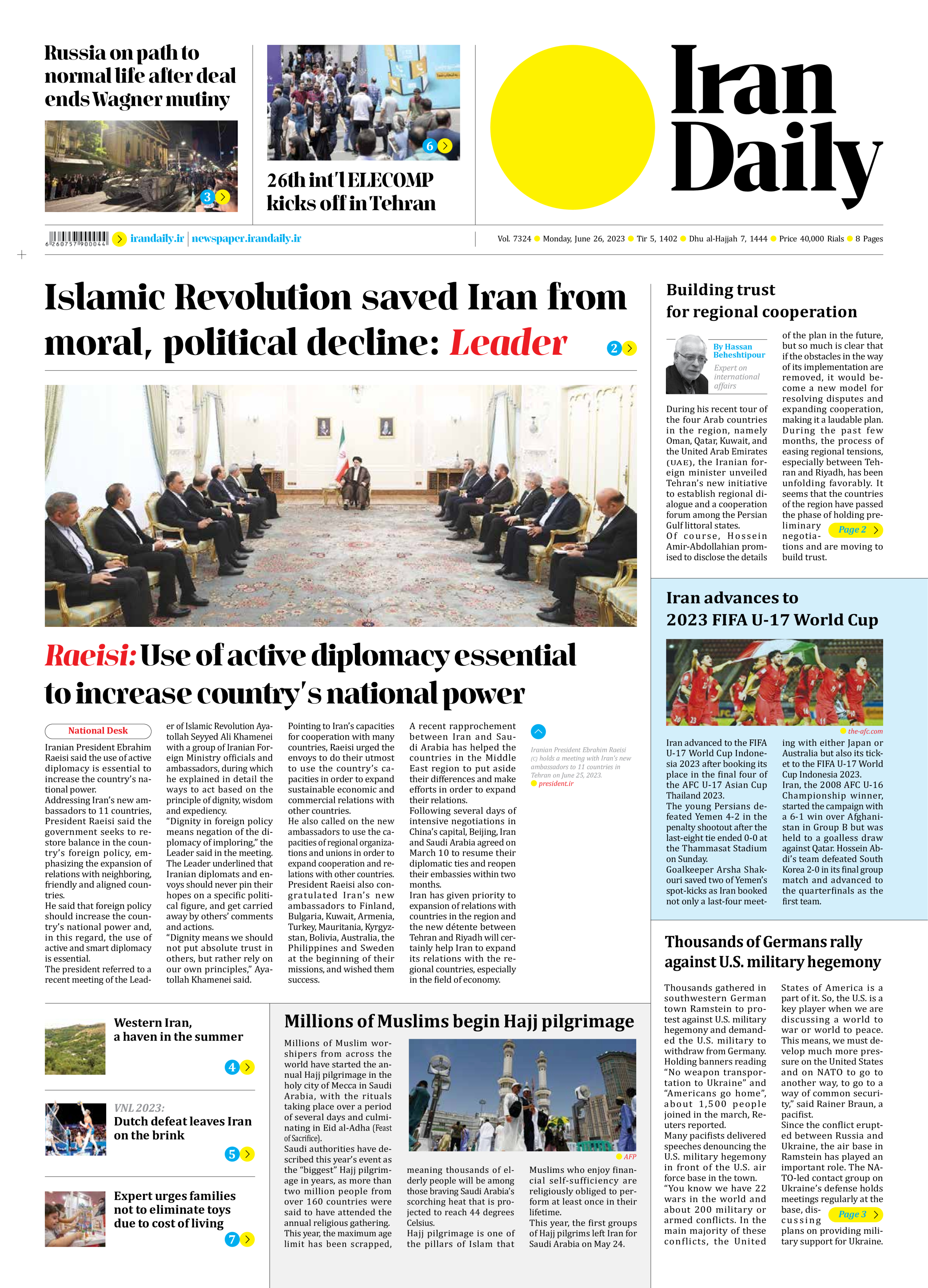
Building trust for regional cooperation
By Hassan Beheshtipour
Expert on international affairs
During his recent tour of the four Arab countries in the region, namely Oman, Qatar, Kuwait, and the United Arab Emirates (UAE), the Iranian foreign minister unveiled Tehran’s new initiative to establish regional dialogue and a cooperation forum among the Persian Gulf littoral states.
Of course, Hossein Amir-Abdollahian promised to disclose the details of the plan in the future, but so much is clear that if the obstacles in the way of its implementation are removed, it would become a new model for resolving disputes and expanding cooperation, making it a laudable plan.
During the past few months, the process of easing regional tensions, especially between Tehran and Riyadh, has been unfolding favorably. It seems that the countries of the region have passed the phase of holding preliminary negotiations and are moving to build trust.
The Islamic Republic of Iran and some Arab countries of the region have lost their trust in each other as a result of some disagreements and misunderstandings, making the trust-building phase a necessity for resuming bilateral and multilateral cooperation.
However, developing trust can only be successfully achieved and stabilized if all parties can define their common interests. In fact, common interests are defined through trust-building negotiations. Consequently, parties can create frameworks for working with each other.
The Islamic Republic of Iran already has close cooperation with Oman and Qatar, but to reach the same level of cooperation with other countries such as Bahrain, Kuwait, and Saudi Arabia, further trust-building talks are necessary.
What makes such talks essential is the fact that regional countries have the potential for cooperation. For instance, Iran and Saudi Arabia can have common interests in OPEC and in the field of energy. The interests of all these countries can also be advanced through the Organisation of Islamic Cooperation. When trust is lacking and misunderstandings are not cleared, both sides fail to benefit from their common interests.
Iran’s introduction of the dialogue and cooperation forum can bear fruit only when the countries of the region respect each other’s interests and accept that they can compete and cooperate at the same time. To give an example, Tehran and Riyadh can well be competitors in certain areas, but this competition should not obstruct their cooperation. As such, the continuation of talks among regional governments can reduce disagreements, resolve misunderstandings, and build further trust down the road, which, in turn, strengthens cooperation.







